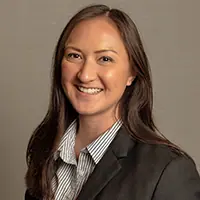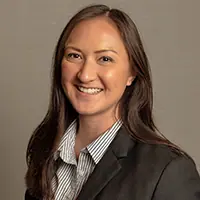
How Two Banks Unlocked Hidden Loan Growth
The invisible sticking point for loan growth at NBKC Bank and First American Bank Corp. came down to a matching problem.
NBKC Bank needed a way to effectively match incoming leads for mortgages with customer service representatives that would be a good fit. First American, based in Elk Grove Village, Illinois, didn’t know how to sort its customers in order to make preapproved loans, or communicate those offers. Both banks used financial technology partners to solve their matching problems and unlock incremental loan growth, maximizing their relationships with current customers and existing leads.
Their fintech partners were two semi-finalists in Bank Director’s 2019 Best of FinXTech Awards for “Best Solution for Loan Growth.” Judges selected winners from the most innovative solutions found in the FinXTech Connect platform. ProPair, a partner with NBKC, won the category, while First American Bank partner CuneXus and CollectEdge were finalists.
NBKC, a unit of Kansas City, Missouri-based Ameri-National Corp., worked with ProPair to create a custom algorithm that optimizes the sorting of mortgage leads to its 100 loan officers. Dan Stevens, SVP of customer acquisition at NBKC, says the program uses insights based on performance metrics and variables like borrower and loan officer characteristics to “reshuffle the deck” and match the best loan officers to particular leads.
He says the bank, which has $801 million in assets, tests the program constantly, keeping 20% to 25% of incoming leads out of the program and assigning them to available officers randomly as a control. He says ProPair increases loans by 15%, compared to this random group.
“We’re always trying to figure out how we can get more lift, but 15% is worth it when you’re talking about the type of scale that we’re doing,” he says.
ProPair used 18 months of NBKC’s data and connected with only two internal systems: the system used by loan officers and the lead management system. It also had an ancillary benefit of providing insights into the individual performance of loan officers. Stevens says the information is like a “scouting report” about officers’ strengths and weaknesses, creating opportunities for improvement and further optimization.
First American Bank had a different, more-fundamental matching problem: figuring out how to offer qualified borrowers a loan that they may not have sought. The bank used CuneXus to offer pre-approved loans to qualified existing customers when they log into their accounts online or through its mobile app. First American creates a campaign around a loan product, such as home equity lines of credit or used cars. It then extracts data on its customers from credit bureaus and sorts for credit scores and other borrower attributes, loading the qualifying customers into the system and offering the loan to the customer when they next log in. All the customer needs to do is accept it.
The bank, which has $4.3 billion in assets, is on its third loan campaign and has made about 150 loans through the platform, at an average size of $62,000. Its loan growth lift has been between 10% and 12%, says Bob Horsman, EVP of lending. He adds that the bank’s results are lower than other institutions that use the technology, because of the type of loans it offers, and that the solution was affordable compared to other options on the market.
The fintech gives First American customers a way to apply for loans online, functionality the bank currently doesn’t have on its product. Horsman says the bank benefits from the interaction even if the customer doesn’t accept the offer by signaling that it views the customer highly and reminds the customer of potential future lending relationships.
“We wouldn’t have known about these loans because we wouldn’t have given our customers the opportunity to apply the way they wanted to apply,” he says. “Just not having [the ability to apply for loans online], they would’ve never considered us. Some might’ve picked up the phone and called us because they’re our customers, but you really don’t know.”



